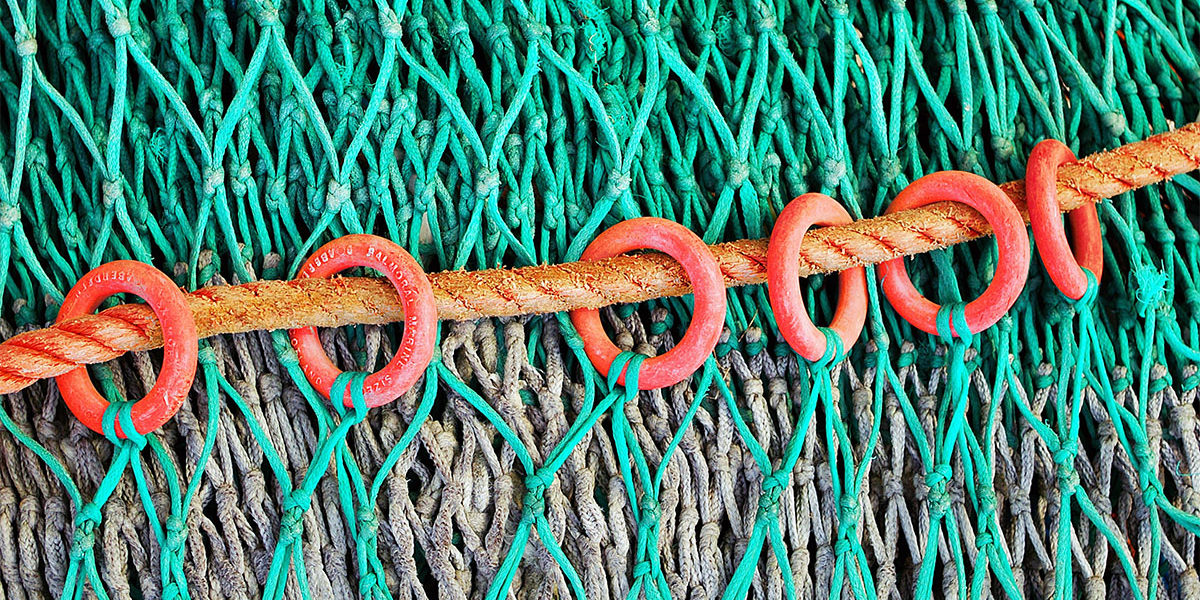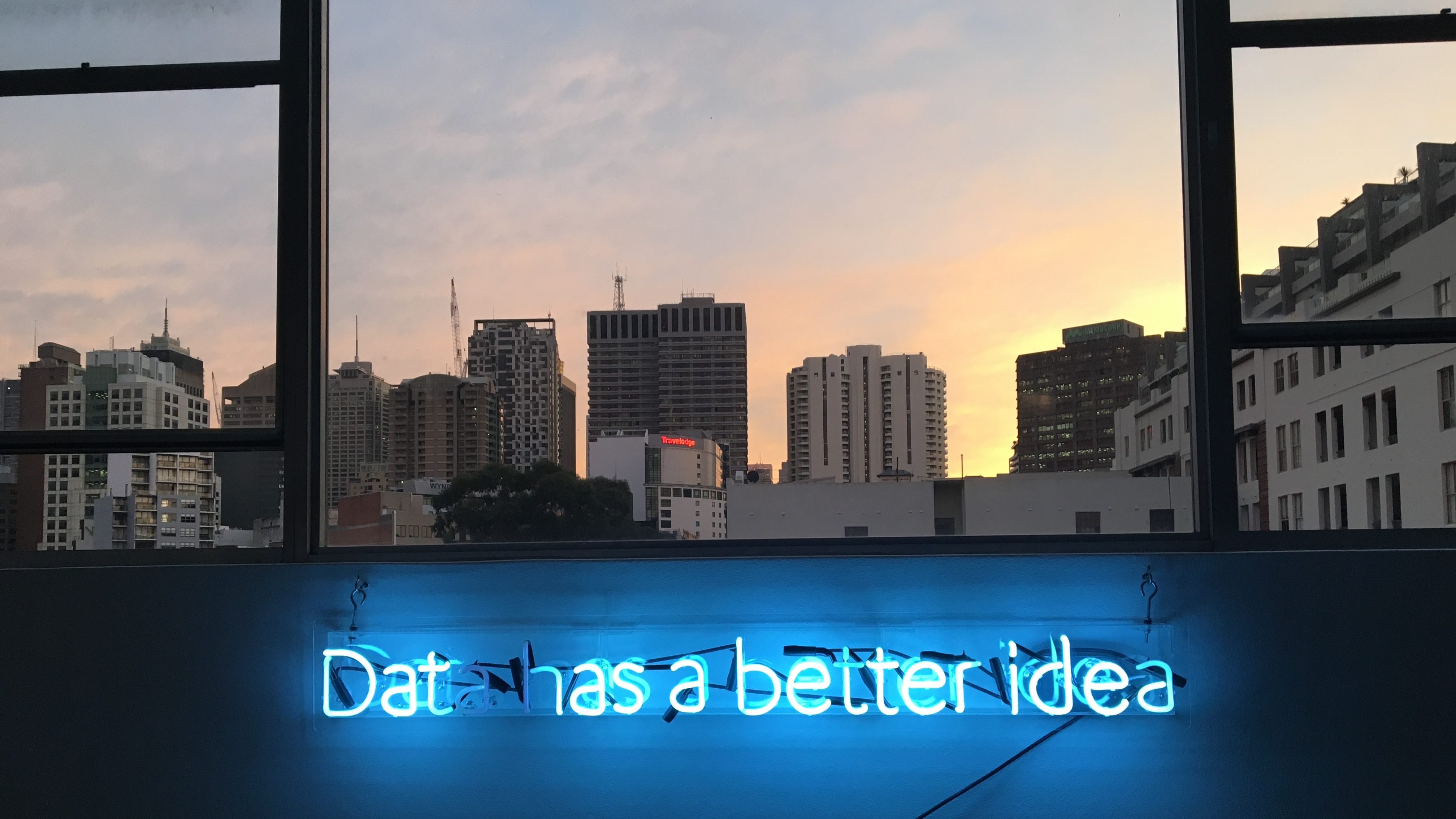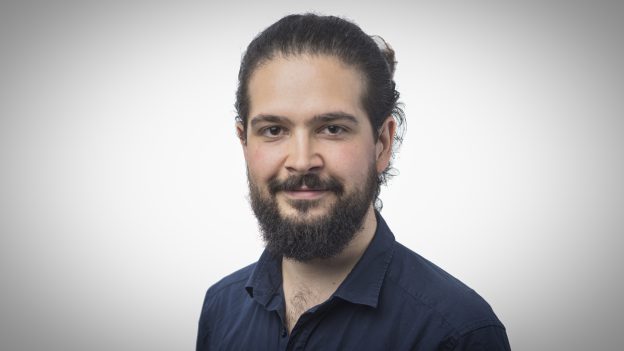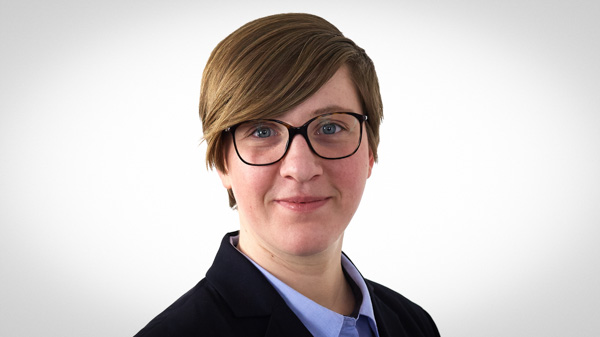
„For the good of the internet“
Das Internet besteht derzeit aus mehr als 60.000 autonomen Systemen. Ohne Konnektivität zwischen diesen existiert das Internet aber nicht. Die assoziierte HIIG-Forscherin Uta Meier-Hahn beschäftigt sich in ihrer Forschung mit der Frage, wie Netzbetreiber wie Netflix, Youtube und die Deutsche Telekom gemeinsam Internetkonnektivität anbieten. Da sie ständig verhandeln müssen, ob sie kooperieren oder miteinander konkurrieren sollen, gibt es eine ganz besondere Form der Konnektivitätsökonomie.
In dieser Episode begibt sich Wouter auf eine Reise in die Tiefe des Internets. Gemeinsam mit Uta Meier-Hahn erforschen sie die Architektur des Internets und die unter den Betreibern gehandelten Objekte. Lernen Sie auch „die Netzwerker“ kennen, eine eng zusammenhängende Gemeinschaft von Internet-Ingenieuren auf der ganzen Welt, die sich für „das Wohl des Netzes“ einsetzen.
Listen to this episode on internet connectivity
From AOL chat to researching internet connectivity
Please note: This is an automatically generated transcript.
Uta Meier-Hahn: In this way the community of network engineers the closely knit community that engages in this super cooperative and behavior for the good of the internet. That is a rather small community but as it is an important community. And it also sort of radiates. It radiates the spirit of the internet.
00:00:20 – Wouter Bernhardt: Hello and welcome to exploring digital spheres. My name is Wouter Bernhardt. And today we’re talking about the internet. My interviewee is Uta Meier-Hahn. She does research into internet connectivity.
00:00:33 – Uta Meier-Hahn: Well why is it important to have a very dense network to have a lot of connectivity.
00:00:38 – Wouter Bernhardt: More specifically she tries to figure out if you can put a price on networking.
00:00:42 – Uta Meier-Hahn: Then the question of how do these two networks how do they determine economic equivalence.
00:00:48 – Wouter Bernhardt: And finally we’re talking about the people behind internet connectivity. The internet engineers. But first Uta please tell me what was your first experience with the internet.
00:01:07 – Uta Meier-Hahn: In fact, I do remember that situation and it was in the U.S. So I was an exchange student to Houston Texas. And as this as it is still today the U.S. is quite advanced in digital technologies and it was so big then so my host family had a computer and my family at home in Germany obviously immediately got hooked to the internet because their daughter was in the U.S. and they wanted to connect with me there. So I remember sitting there and those host families actually. And there were three and sitting at night at the computer and writing e-mails with my family and then but also discovering AOL chat there and doing what is really commonplace today.
On the internet nobody knows you’re a dog, right?
00:01:53 – Wouter Bernhardt: So what is for you the moment that you transferred from being an internet user to somebody who would be interested in the internet as a commodity or as a study.
00:02:04 – Uta Meier-Hahn: I would say that was around 2002 I would say. So I was at university at the University of Lüneburg. There was a computer center at this university and we had also mandatory courses and one of them was building HTML and learning at each team. And so I both took that course and then became a tutor in that course and worked at that at that facility to help other students in that regard. And that was I think in 2002 was when I registered my first domain as well basically as a playing field to see what the internet world would hold for me and how I could apply my new knowledge and to me it’s still it’s like the domain is called Zweitsgeburtsort.de. And it is I still like it very much because it’s a relic and a memory of that time when the idea was that you know this you know the sentence “on the internet nobody knows you’re a dog”, right? There was a very early saying symbolizing the hopes and the freedoms that we would have in discovering the internet and using it in anonymous ways and sort of rediscovering who we are through the internet. And so inspired by this idea which I like very much. I selected this domain Zweitsgeburtstsort.de because it sort of symbolized for me that on the internet you can create your. Your very specific identity like a second identity so you also might as well have a second place of birth which is what Zweitgeburtstsort means. And so I still hold that domain because it reminds me of this idea of the internet and also today it’s. It’s a good way of recalling those hopes and of comparing what what has become of the internet – because now everybody knows if you’re a dog…
Competition and cooperation keep the internet running
00:03:45 – … But a turning point that led me to my research was that I was able to visit the internet Governance Forum in Baku in Azerbaijan. There was something that the institute facilitated for me and there I went into a workshop about internet interconnection. And I remember Bill Woodcock who’s a very prominent person in this space talking about interconnection relationships and that is the internet is a network of networks. And currently it’s more than sixty thousand so-called networks autonomous systems. They’re called and the questions of how these networks interconnect was present at this at this workshop at Baku and I thought it was really fascinating because what became apparent is that there is a fundamental tension between competition and cooperation when internet networks interconnect. And this tension has to do with the fact that on the one hand every network operator think of Netflix think of Google think of Deutsche Telekom internet access providers so that all of these network operators have to interconnect with other networks in order to provide internet connectivity for their users whoever the users are. And at the same time they may be in competition with each other for those users. And so they constantly have to have to negotiate if they if they want to cooperate or if they want to compete with each other. Anderson that was a super interesting tension for that I saw there and that was the beginning of how I started my research.
Internet connectivity as an economic good
00:05:30 – Wouter Bernhardt: I think maybe it’s good to sort of introduce it in the sense of how you research it, because as I just use the internet and maybe some people see lots of code and that’s how they see the internet. You research the internet as an economic good right. That is what your your research is about. When I first heard that that sounded really abstract to me. Because what is it actually that has the value there. Right what are we actually putting a price on. What is actually being traded between the two different partners. Maybe you can talk about the internet as an economic good.
00:06:10 – Uta Meier-Hahn: I would be talking about internet connectivity as an economic good. But apart from that your questions are very much at the center of my research in fact. So I’m interrelating three different aspects or concepts if you will to explain how internet interconnection economics work. So the these three aspects that are interrelated is the architecture of the internet. Then the question of what is it about. What is sort of the object that is being traded in interconnected relationships between networks. Like what do they make the object of their if you will exchange and then the third important aspect is the community of internet engineers. They refer to themselves as the networkers. So very early use of the word networker. And the basic argument goes that the architecture of the internet with the two main protocols that every network operator has to use which are BGP the border Gateway Protocol and IP the internet Protocol. The basic thing is that IP is the is the protocol which is used to actually transmit the packets on the internet and BGP is the protocol to communicate about past destinations and how to reach them. The reason why these two protocols are so super important and why they basically shake this whole economy if you will and make it so different from other economies is that neither of those protocols entails a mechanism for how to do economic transactions. Basically neither offers a way of a mechanism for accounting. Basically sometimes network operators network engineers refer to the internet as relying on trust. So this means that if you and I are network operators and we interconnect our networks then I have to trust you that you can actually transmit the traffic I give to you to the destinations that you say you can reach for me. So but that is the Border Gateway Protocol. We can get very specific in the basic message for my research in this context is the Border Gateway Protocol induces operational uncertainties and the internet Protocol and the Border Gateway Protocol both together they induce economic uncertainties because they don’t don’t tell those who are using that it what is a transaction what is a product what is it that we are exchanging.
Economic uncertainties: It’s all about trust
00:08:41 – Wouter Bernhardt: How do people then do business with each other? I mean you say you already mentioned very briefly that it’s about trust but to me it still feels very abstract. I’m network number one over here and I want to sort of reach a whole bunch of people network number two. How or on what basis do these people do business with each other?
00:09:03 – Uta Meier-Hahn: Yes so that is the the second question that I came to as well. What is it that network operators trade with each other. How do they determine value. Those are the leading questions in this part of my research. And in order to to move towards an answer I have to explain one more thing about the basic forms of interconnection that have been established between network operators and these forms of interconnections are called transit and peering. When two networks enter a transit relationship, then one network offers to the other access to the whole rest of the internet. If you are a small balloon network and do what you want to reach the rest of the internet then you can go to a large internet service provider and many do that and you can say I want to please organize connectivity to the rest of the internet for me and I will pay you for that. That is transit.
00:10:06 – Uta Meier-Hahn: The other form of interconnection is our variances of so-called peering which refers to an interconnected relationship in which two networks decide to interconnect their networks and exchange only the traffic that is meant to cross between these networks. And this is to differentiate between transit and peering from theoretical and economic perspective it is so important because transit is a product. It’s a it’s a product that any network theoretically can provide. That means that transit is comparable too, it means that competition can exist around transit because it’s a product that has characteristics that can be clearly described and they can be compared. Peering is different. Peering are different because if two networks interconnect each network has its very own shape. One of my interviewees said each network is its own unique snowflake. And I liked that picture because it really means that each network has a structure and a characteristic that is unique and from conceptual point of view it means that there is no way to reproduce the offer of connectivity that one network can offer to another network. And this again means that there is no way of generating comparable products exactly. There is another characteristic of peering and that is that usually in the tradition of the internet peering has been done at no cost. So both parties decide to offer connectivity to each other for free if you will or just nobody will pay the other.
“But what about peering. So how do we determine equivalence?”
00:11:49 – Uta Meier-Hahn: So if you have a relationship between two networks that is unique and neither of the networks is paying each other then the question of how do these two networks determine if they feel that their value propositions are equal. How do they determine equivalence. How do they determine economic equivalence. And that is the question that I looked at because appearing there is no price. They have no there’s no external mechanism to refer to. It’s basically a direct comparison between two offers of connectivity. In my research I sort of focused on these very specific peering relationships or variances of that and sort of the gray zones produced around that I didn’t look so much at transit because it was clear. So this is clearly a market that even price comparison platforms for transit checkmark on that.
00:12:40 – Uta Meier-Hahn: But what about peering. So how do we determine our equivalence and you were saying the networkers don’t know, may not know what they exchanged with each other. Well maybe not formally but informally they certainly have conversations about that and what I did empirically is that I interviewed for seven networks around the globe internet engineers those who actually hook up networks with each other and determine mostly determined those relationships. And I asked them this very question how do you decide. And they described this in very different ways and what I sort of developed out of these out of these answers conceptually is what I would call a product centred perspective on the interconnection economy.
00:13:27 – Uta Meier-Hahn: These I probably shouldn’t go into too much detail of these product quality conventions but the important thing to mention is that each of these conventions A) determines what is it that the what. What is it that I demand the interconnection to be about in a negotiation when I negotiate with another network engineer. b) How should we realize that interconnection internet interconnection is not only about the price internet interconnection is not only about the price it’s worth repeating because usually economic theory treats it as if it was only about the price but internet interconnection is very much also about the way that these interconnections are being realized and about the operational relationship the two networks enter. It’s not like a transaction on in the supermarket where you go in and leave but it’s a continuous relationship that these two networks enter. So the consideration of the whole negotiation is not only about the price. It is also about are we going to work together in a way that serves both of us in a way that for instance will you guarantee me that your network operation center is available 24/7 every day of the year. Will you guarantee me that our networks can interconnect not only at one internet exchange facility but at several because I have a certain preference for resilience in our interconnection. I want to make sure that it’s that’s always there even if if there’s a if there’s an interruption of one of those. So these these ideas of putting the product at the center are related to ways of coordinating that interconnection relationship and that’s that is the concept that I’m proposing to think about to think about them.
Closely knit community for the good of the internet
00:15:22– Wouter Bernhardt: Now you’re already starting to talk a little bit about the engineers those who are the ones who facilitate sort of more interconnected connectivity. Yeah maybe you can talk a little bit more how they or you’ve interviewed a whole bunch of them right so maybe you can talk a little bit about what function they have in your research.
00:15:41 – Uta Meier-Hahn: So the internet engineers I interviewed which are 47 internet engineers around the globe who work for networks of all kinds from the smallest to the largest from from the networks we all know. I’ll just leave it at that from the large networks we all know to the small networks nobody knows from content providers to what some refer to as hyper giants. So the internet injury engineers were the ones whom I interviewed and basically my source for understanding how the internet actually worked. Not on paper but operationally. And that is I mean fewer people fewer people talk to internet engineers.
00:16:23 – Uta Meier-Hahn: But obviously you get a different picture than what I was mentioning before that the internet breaks all the time and how this uncertainty that I introduced in the beginning of our conversation the uncertainties that stem from the internet architecture the operational uncertainties and the economic uncertainties, these uncertainties are being mitigated because as you mentioned correctly the internet works most of the time. It doesn’t look it is a success story it works most of the time. And the reason for that is that these uncertainties are being mitigated and they are being mitigated by the community of internet engineers around the globe. Now this sounds like it’s this huge community 60,000 networks of course that is not true the community the closely knit community that engages in this in this super cooperative and behavior for the good of the internet that is a rather small community but it is an important community and it also sort of radiates. It radiates the spirit of the internet in the interconnection ecosystem.I would say but they are also really important for the functioning of this economy because as I said in peering when two networks try to establish equivalence between the offers when they want to interconnect it’s important that they achieve a shared understanding.
00:17:49 – Uta Meier-Hahn: It’s important that they can rely on shared notions of what to put at the core of the internet because otherwise it’s really peering would not be efficient if the network operators would not understand each other if they wouldn’t wouldn’t be able to to conceptualize what the what this relationship is about. And in this way the community of network engineers is a precondition for doing internet interconnection because the community is the arena where these understandings of what makes the product and internet interconnection and what the coordination must look like is being debated discussed and also challenged. Of course I mean we if you look at my dissertation and look at those product categories at these quality conventions they they do not they are not always in harmony with each other. That is the nature of the thing. But so the community is the space where these meanings are being negotiated and contested and. And this again means every network that decides to go about organizing its connectivity in a more in a very controlled way that decides to manage its connectivity independently and not just by connectivity via transit that every one of those networks somehow has to be either interested in this community or get in touch with this community because if you want to if you want to sort of play to those quality conventions you have to learn them and if they don’t suit you you have to go to the community and do such a challenge it challenging them. If you’re not one of the super large networks obviously they have a have an advantage and just saying this is this is the way I want to organize connectivity. But for everybody else it’s that is the space where you have to go. This is also I would say a learning for a probably for other economies that you shouldn’t look at an economy and take the product for granted. You should look at an economy and also look at how the product understandings are being produced and how this understanding of what makes a product and what makes the qualities of the product is being is being addressed in the negotiations maybe as a last question.
What’s the future of internet connectivity?
00:20:04 – Wouter Bernhardt: You’ve talked a lot about internet connectivity that lots of networks are more and more networked come into being that they interact with each other that they do business with each other. How does the future of internet connectivity in that sense look like what we have. Like infinitely more connections does it does it look like it’s going to be going to good direction like is there a lot of potential or willingness to make these connections and in that sense how what will be the role of this community of internet engineers.
00:20:37 – Uta Meier-Hahn: It’s not as attractive anymore to become a network engineer today as it was back in the 1990s or earlier when the internet was the the new technology. Think when the internet back the internet back then was like AI is today everybody wanted to go into that area. Everybody knew this is this is going to develop there’s a lot of innovation. There was a lot of freedom to develop things so that is why many of the network engineers who have built the internet and who continue to maintain the spirit of the internet for all the media that the internet is as a commons. Basically when these engineers have entered their profession in the 90s when the internet looked completely different. So nowadays it’s not so attractive anymore to boot to become a network engineer because many things that there’s not as much freedom anymore. And there are many alternatives to I don’t know to go and develop software whatever to go on the application level. Apparently that is much more sexy nowadays as I’ve heard. So this means that as a tendency the capacity of this community is aging or the community is aging and with the community the shared understandings so the community is aging and that may be an issue because as I was told by some of my interviewees the young network engineers they come in with very different understandings of what they’re about to be doing. They they have a more transactional point of view possibly towards the internet.
00:22:09 – Wouter Bernhardt: That was Uta Meier-Hahn talking about keeping the internet alive. If you want to know more about her research click on the links in the show notes and as always for more information on the Alexander von Humboldt Institute for internet and Society their research and future events go to hiig.de. If you learn something today if you’re 20 minutes wiser about the internet and you want to learn something tomorrow too then do leave us a comment or writing on iTunes.
00:22:40 – Wouter Bernhardt: This was exploring digital spheres. Catch you on the flip side.
Exploring digital spheres is a science transfer format of the Humboldt Institute for Internet and Society (HIIG).
The podcast is produced in cooperation with Wouter Bernhardt (Berlinology).
Rate us on iTunes!
Contact our team here.
Keep in touch
Would you like to receive the latest news on internet and social research? Subscribe to our newsletters.



